The potential users of the products and applications planned for development by the SEN4LDN project can vary greatly from Governments and large international institutions, to research institutions and NGOs working on conservation and biodiversity, to private sector partners interested in carbon monitoring, and even other end-users that are interested in exploring land degradation (LD) data for their own private interests. Nevertheless, the SEN4LDN target users are Governments and international institutions responsible for monitoring SDG indicator 15.3.1 towards achieving the 2030 Agenda for Sustainable Development, because the main aim of this project is to increase the spatial resolution of LD products which can be used for SDG indicator 15.3.1 monitoring.
These users often require that both data and methods be of the highest scientific standards possible and standards which are widely accepted and that can be included into policy making processes.
Furthermore, these users identify a number of bottlenecks within their own capacity of monitoring SDG indicator 15.3.1 which varies between data accessibility to capacity building and inconsistent definitions between international institutions and local institutions.
SEN4LDN Early Adopter engagement strategy
Our engagement with the core users requires an active effort from SEN4LDN to identify points of contact which can provide direct feedback to the prototype products and use-cases that can be used to drive the product development. Users play a central role on the SEN4LDN, meaning that during the algorithm trade-off phase, the SDG/user requirements will steer the design choices. Our approach to Living Labs consists of engaging with the SDG Early Adopters at different phases of the product development.
First Living Labs
The first SEN4LDN Living Labs sessions focused on collecting Early Adopter's user requirements and expectations and were organized with
- Busitema University (Uganda) on the 8th of March, 2023
- Ministry of Environment and Sustainable Development (Colombia) on the 24th of May, 2023; and
- Institute for Conservation of Nature and Forests (Portugal) on the 7th of June, 2023.
To ensure that we collected similar information between all the selected early adopters as well as to encourage an active participation by them, SEN4LDN used a structured interview approach. This document was sent to every participant before the first Living Lab session and was then used as a 'living document' during the session. By doing this, we ensured that we were able to get not just a broad overview of the user requirements, but also an understanding of LDN efforts by each of the participants.
The interview was divided into 4 blocks:
- National activities for LDN,
- Land cover data,
- Productivity data, and
- Carbon stocks data.
The first block aims to identify not just the activities but also the drivers of LD in the target country/region, while each of the remaining 3 blocks aims to specify the user requirements regarding the data products.
A meeting was also held with the EEA but since the EEA will take up a more consulting role, this meeting did not follow the standard Living Lab approach being used for each of the countries bein used for demonstration.
The outcomes of the first Living Lab sessions are summarized in SEN4LDN D1.2 'Requirements baseline', which will be made available here.
Outlook
The Living Labs are part of the agile development approach used by SEN4LDN through continuous interactions with the SDG Early Adopters and through some iterative development cycles with parallel and progressive refinements of the user requirements and of the EO solution.
We will continue ongoing until the project/data product is finished and will be the main mechanism used to adapt the development to the individual user requirements of the SDG Early Adopters throughout the project.
To broaden the scope of the data products, later in the project an 'Open Stakeholder Living Lab' will be organized targeting not just the SDG Early Adopters but also other SDG practitioners. This will enable us to inspire and encourage an active engagement with the user community during the co-creation phase and will be key to enable and encourage uptake of the developed EO-solution.
